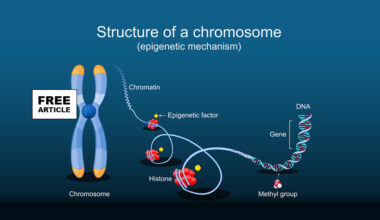Preimplantation Genetic Testing (PGT) has been used in various forms over the last two decades. Preimplantation Genetic Testing PGT involves testing early embryos following in vitro fertilization, IVF, and has now become an accepted part of genetic testing. Nowadays, PGT serves as a resource for couples who have a family history of monogenic (single gene) disorders, wherein the fetus is at high risk of inheriting the condition. PGT is also used to improve pregnancy outcomes in IVF patients in cases of recurrent IVF implantation failure, recurrent miscarriages, as well as male factor infertility. It is also used in screening for sex-linked disorders and sourcing stem cells for therapy. The latest Preimplantation Genetic Test PGT is Polygenic Embryo Screening (PES), which allows the identification of embryos that are at elevated risk for significant diseases in adulthood, such as coronary artery disease (CAD), diabetes, hypertension, and breast cancer.
Unlike traditional Preimplantation Genetic Testing (PGT), which looks for single-gene disorders (like cystic fibrosis) or chromosomal abnormalities, Polygenic Embryo Screening (PES) estimates an embryo’s genetic predisposition to complex traits and common diseases that are influenced by many genes. As the prevalence and the potential for the use of Polygenic Embryo Screening (PES) grows, fundamental ethical issues have been underlined, raising concerns about the broader implications of genetic testing.
Recently startup companies in the US have claimed to be able to predict IQ based on Polygenic Embryo Screening (PES) which appears to have induced wealthy couples to forego natural reproduction in favor of IVF even when unnecessary in order to custom design their offspring. Historically, this was type of offspring selection was called eugenics. According to the Wall Street Journal, “Wealthy Silicon Valley Parents are paying up to $50,000 for new genetic-testing services that include promises to screen embryos for IQ. Tech futurists such as Elon Musk are urging the intellectually gifted to multiply, while professional matchmakers are setting up tech execs with brilliant partners partly to get brilliant offspring. Is it fair? This is something a lot of people worry about,” said Hank Greely, director of the Center for Law and the Biosciences at Stanford University. It is a great science fiction plot: The rich people create a genetically super caste that takes over and the rest of us are proles.”
How realistic is it for Polygenic Embryo Screening (PES) to actually predict IQ and what are the downsides. While the preimplantation screening of embryos for aneuploidy (PGT-A), chromosomal aberrations (PGT-S), and monogenic diseases (PGT-M) is widely accepted, the use of the newest iteration of PGT, Polygenic Embryo Screening (PES) remains immersed in controversy within both the scientific community and the media (polygenicembryo.org). It is essential that couples know that PES is still in the experimental phase and that most data is based on modeling rather than clinical outcomes.
Polygenic Embryo Screening relies on a method known as genome-wide association study (GWAS), which identifies a large number of genetic variants, typically single-nucleotide polymorphisms (SNPs), associated with a wide array of complex traits This analysis estimates the risk of a polygenic trait (Polygenic Risk Score or PRS) rather than a genuine diagnostic outcome.
While Poly Genetic Risk Scores PRS exhibits significant reliability for diseases such as type 1 or type 2 diabetes, hypertension, and breast cancer, its reliability diminishes for psychiatric disorders such as schizophrenia, dementia, and many others. Furthermore, the efficacy of PES for diseases is contingent on the selection strategy due to the intricate nature of polygenic traits, characterized by gene–gene interactions (including pleiotropy, the expression of multiple traits by a single gene,), and varying degrees of influence from environmental factors.
According to experts polygenic scores for intelligence (IQ) explain only a small fraction (around 2-11%) of the variation in intelligence, even with large-scale studies. This translates to a relatively small potential gain (around 2.5 IQ points) when selecting the highest-scoring embryo compared to the average. Polygenetic Scores are based on probabilities, not guarantees. Many factors beyond genetics, such as environment and random biological variation, influence IQ. A high-scoring embryo might not be the “best” in real life, and vice versa.
Experts also caution about unintended consequences. Traits some may not want for their children could come along with selecting for high IQ. The Wall Street Journal also reported “If you’re selecting on what you think is the highest IQ embryo, you could also be, at the same time unwittingly selecting on an embryo with the highest Autism Spectrum Disorder risk,” said Gusev, the Harvard statistical geneticist.
In conclusion, while Polygenic Embryo Testing for IQ is technically feasible, its current predictive accuracy is limited, and its application raises serious ethical concerns.
Sources
https://pmc.ncbi.nlm.nih.gov/articles/PMC12156276/
https://www.theguardian.com/science/2024/oct/18/us-startup-charging-couples-to-screen-embryos-for-iq









